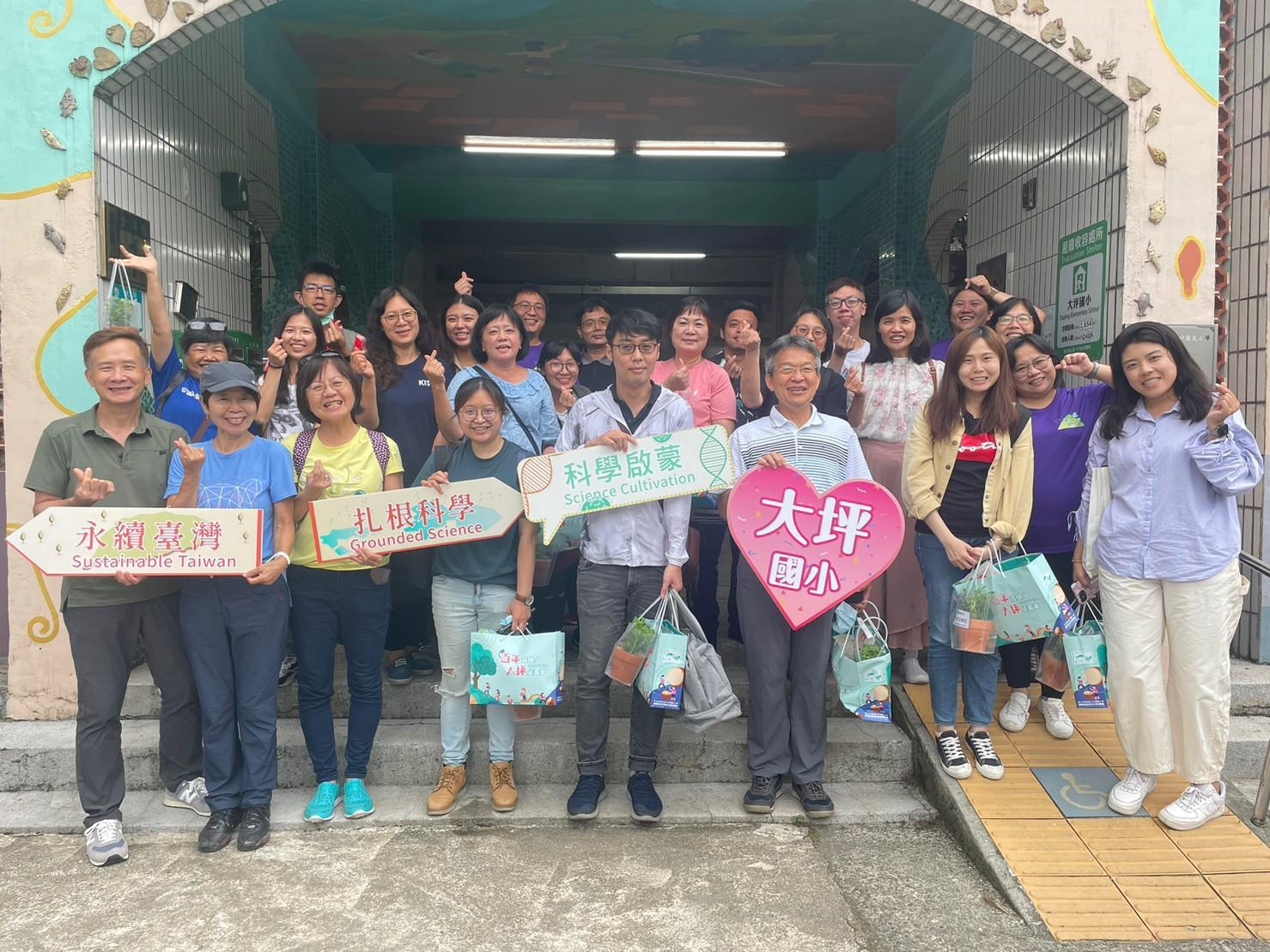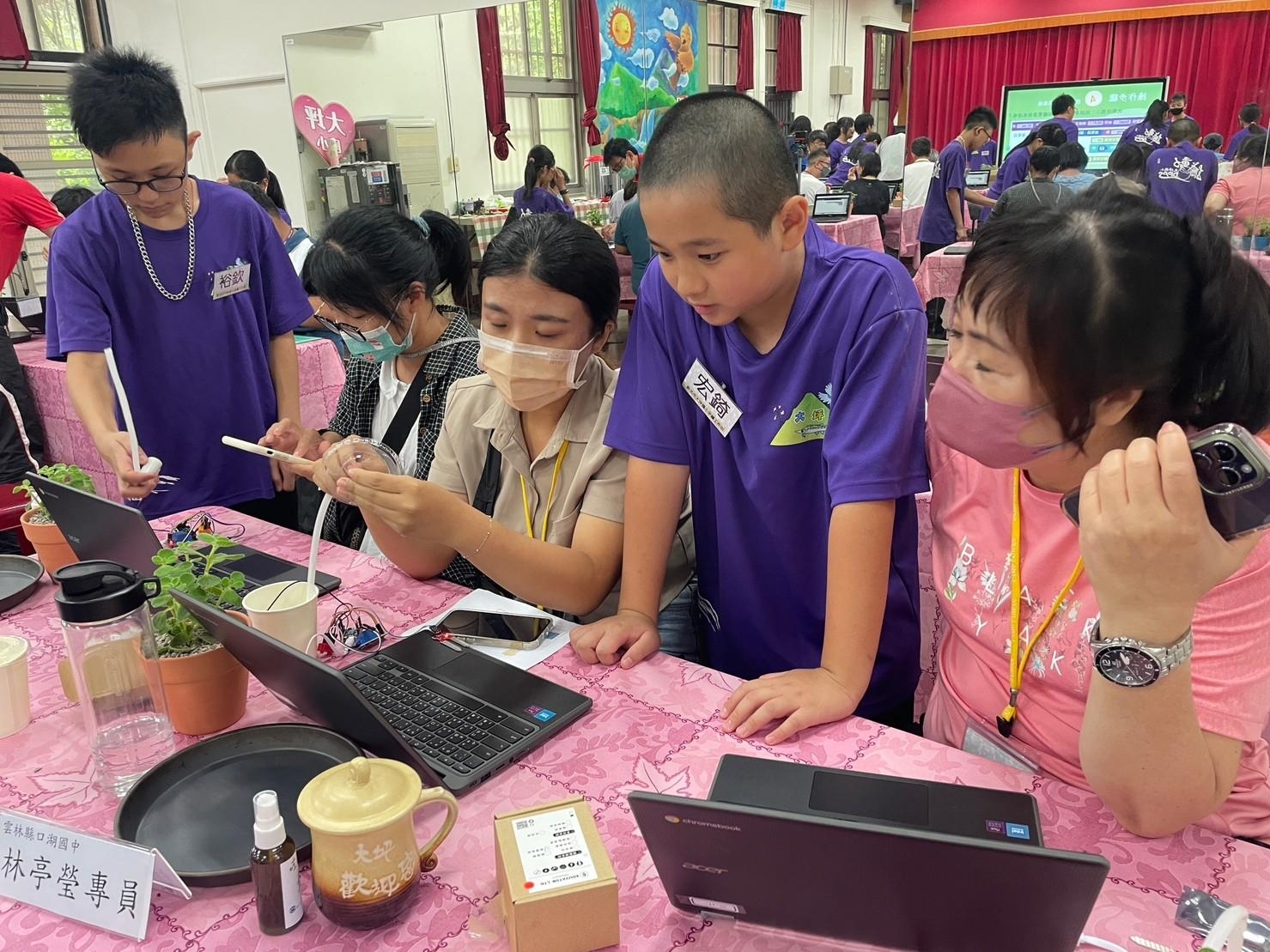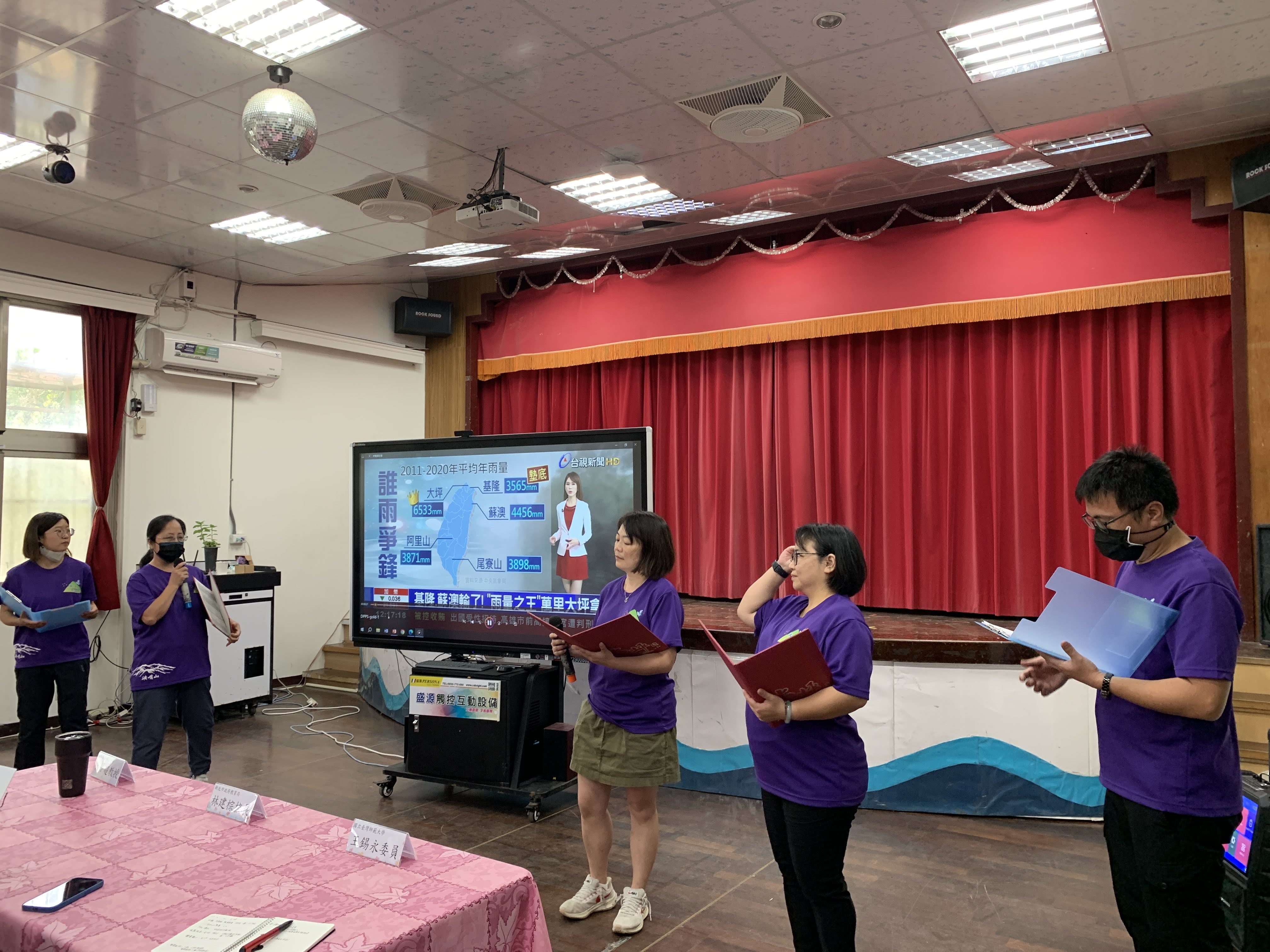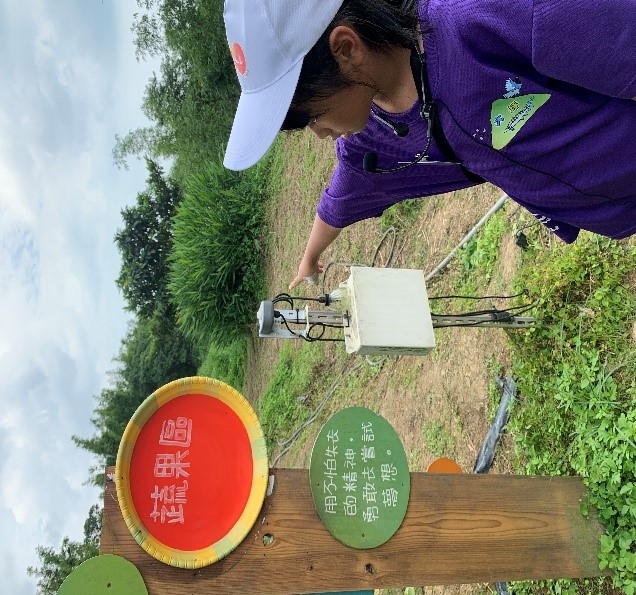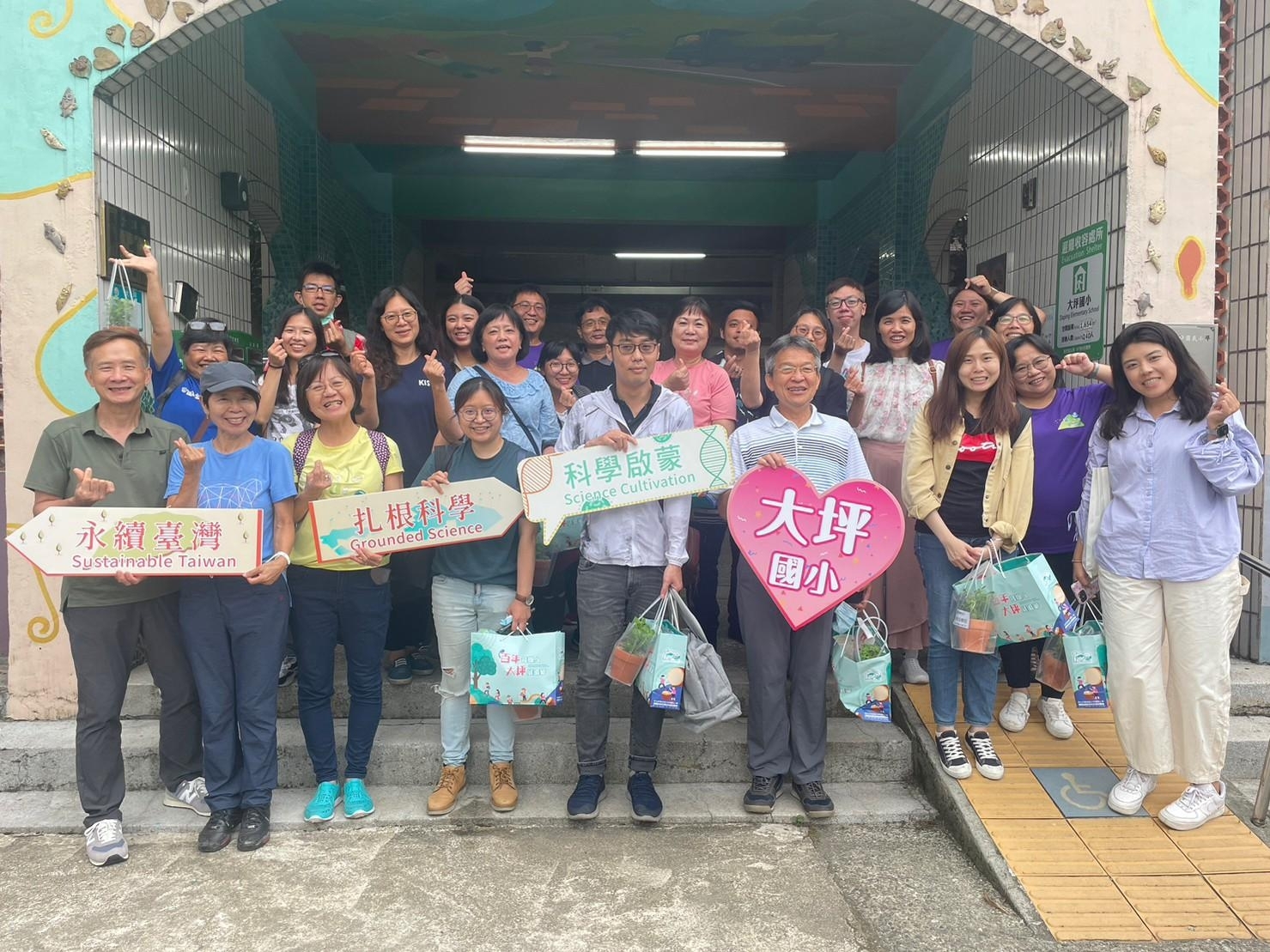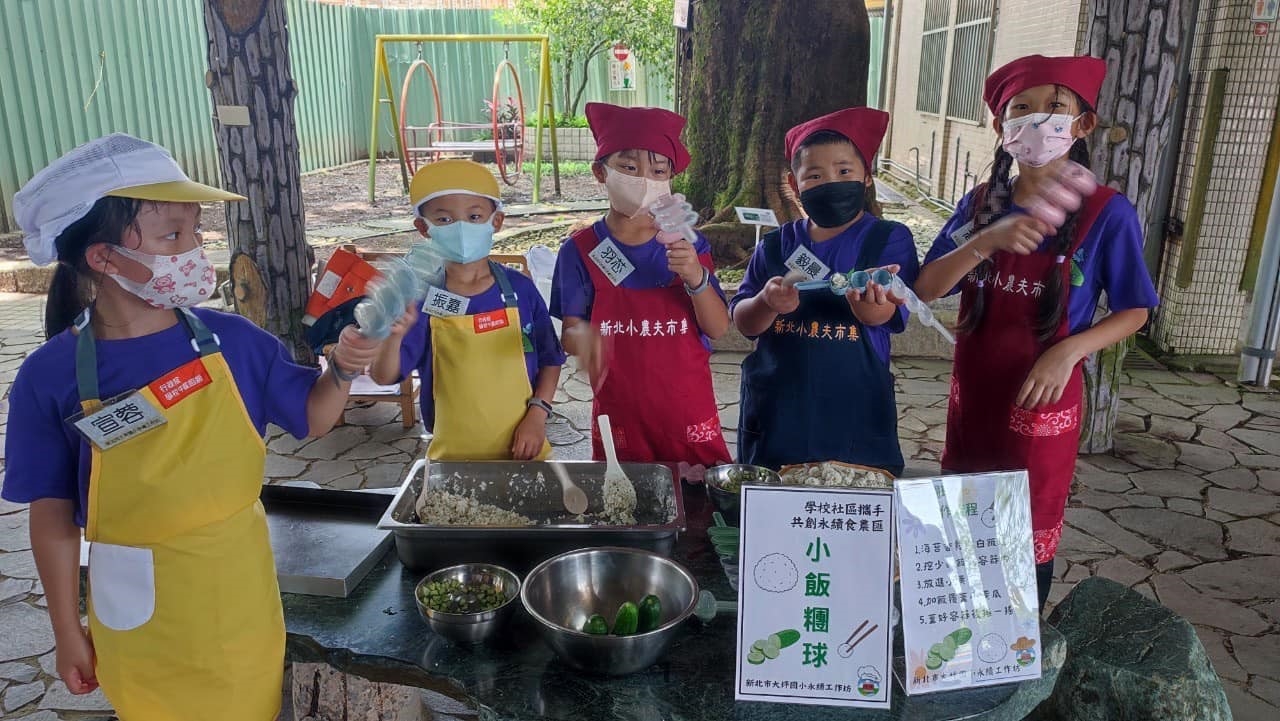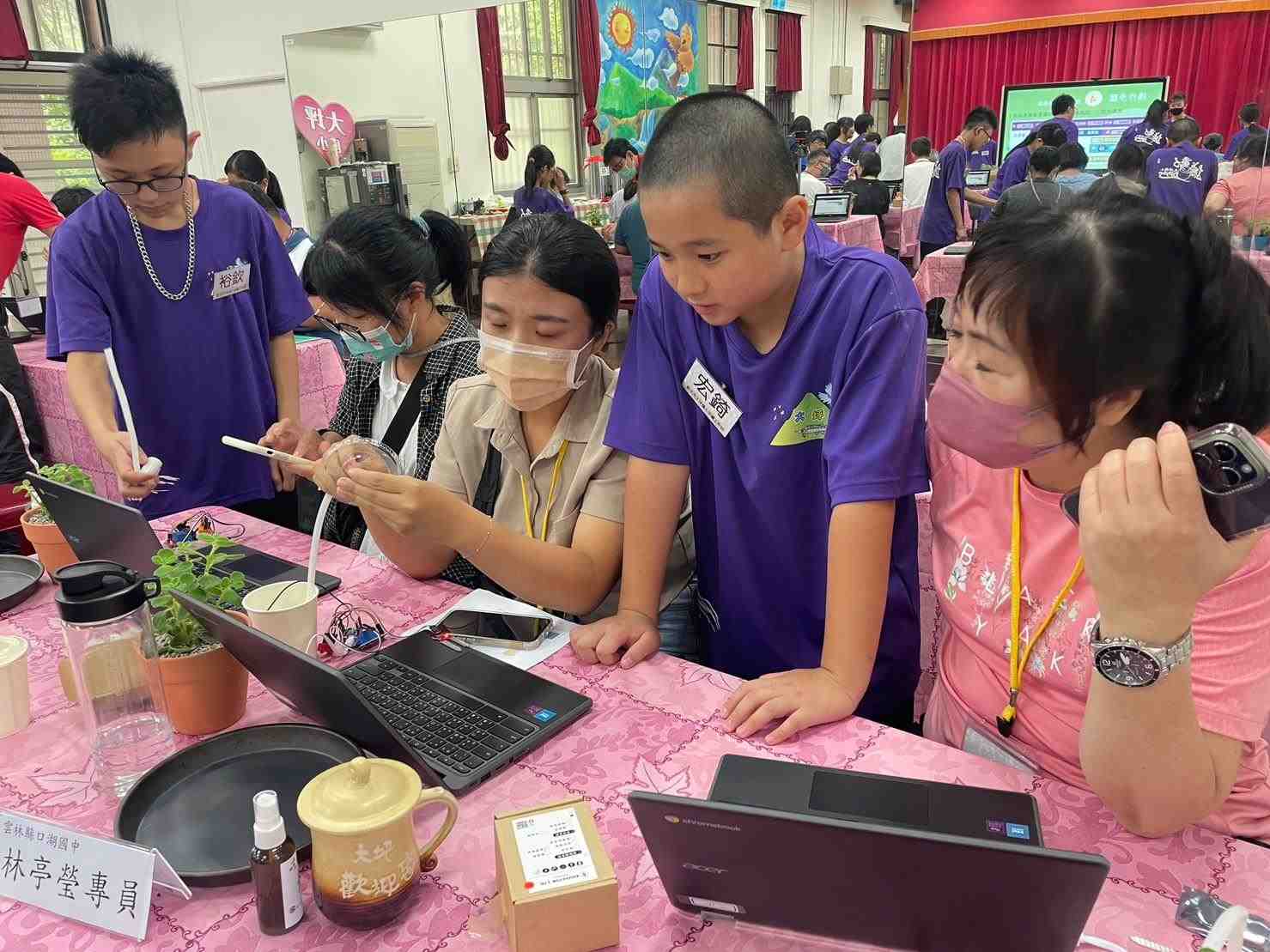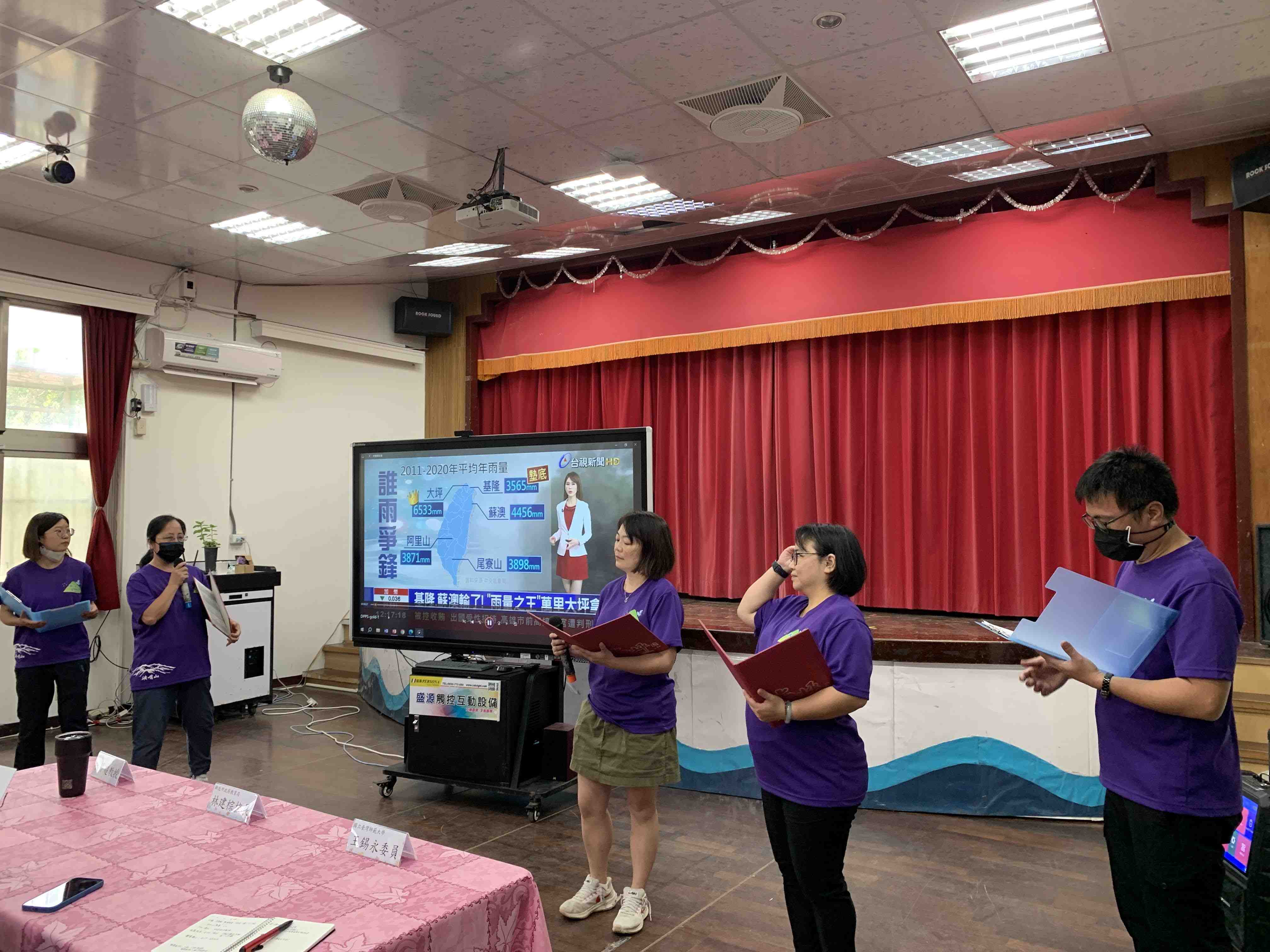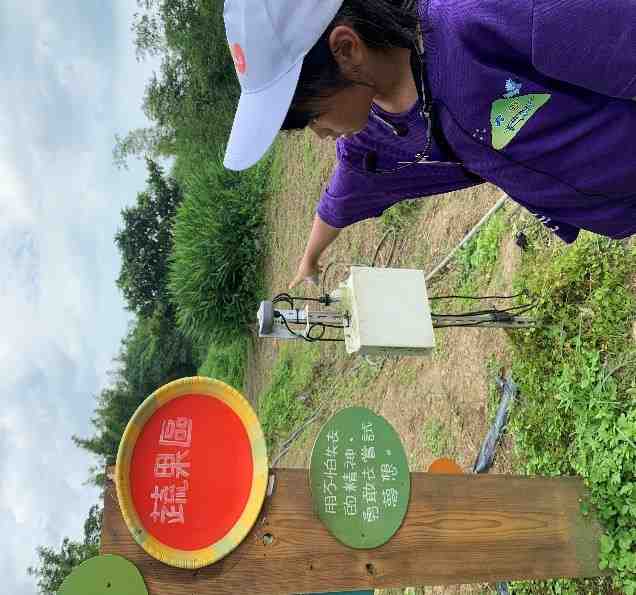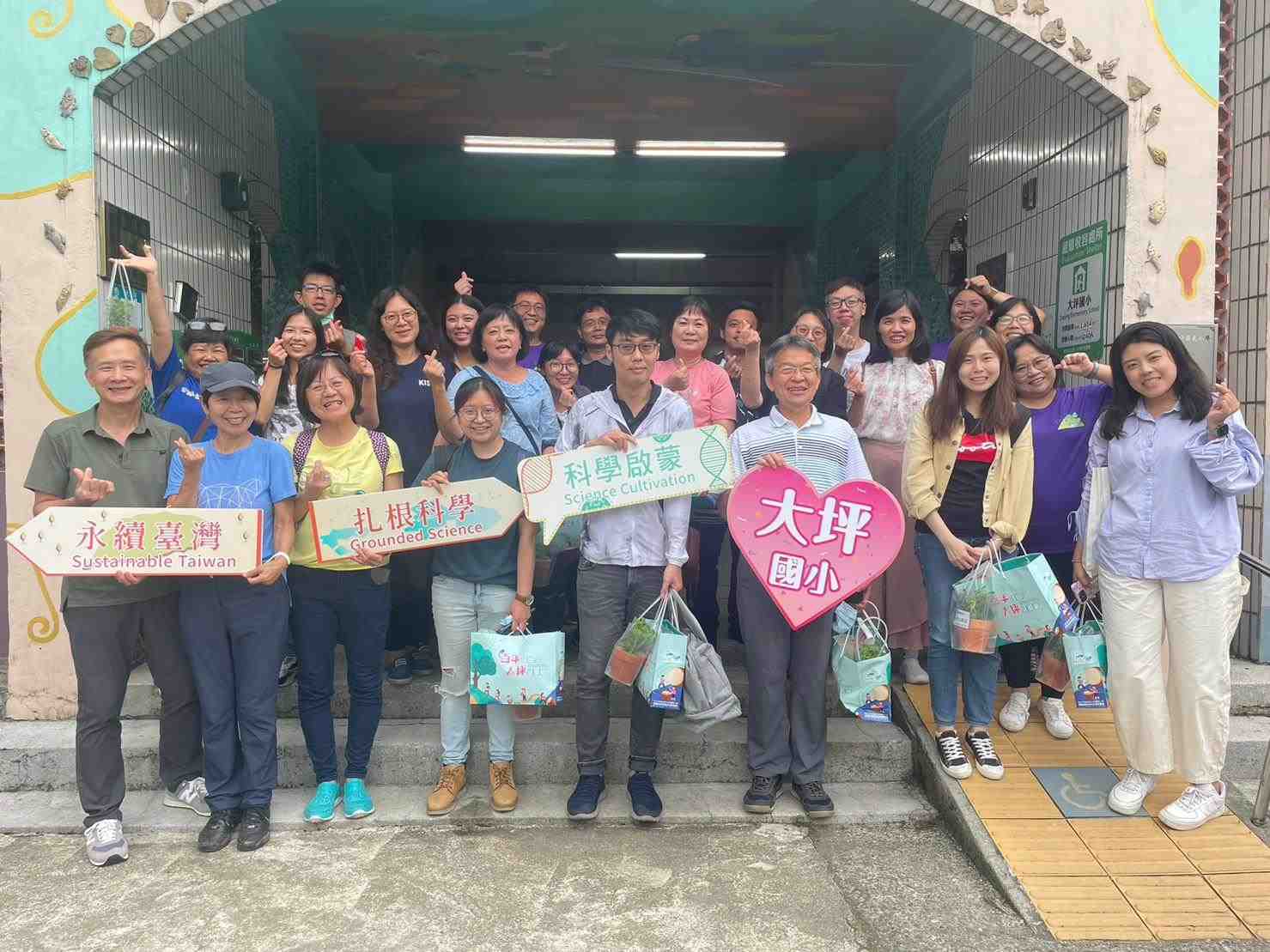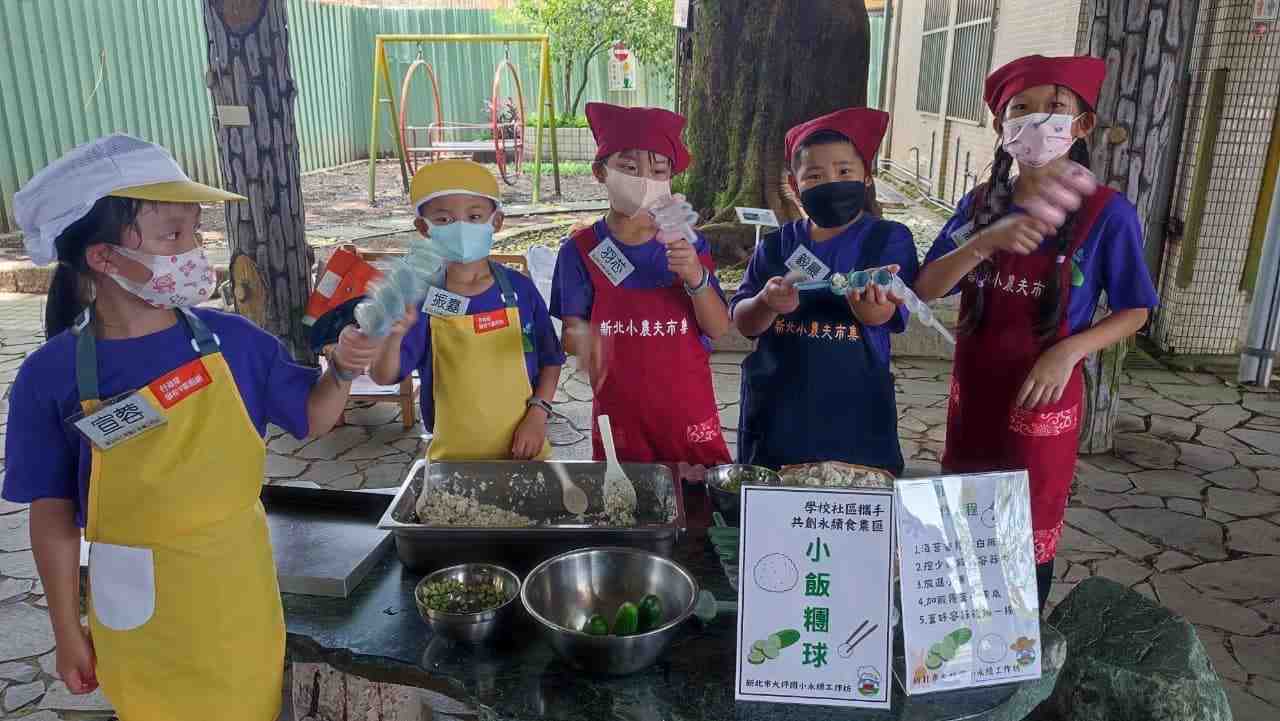Sustainable Development Co-Learning Workshop - Daping Elementary School
Teachers introduce the curriculum that integrates food and farming, and how Daping has rooted sustainability. Starting from exploring the environment, self-discovery, and future exploration, the child-centered exploratory teaching concept is introduced. Community professionals are invited to collaborate in teaching, such as local farming experts teaching about local specialty sweet potatoes, agricultural technicians assisting with aquatic planting maintenance, and food and farming instructors preparing a bountiful feast. Community volunteers also work together to create a dream farm. The smart farm system of the Council of Agriculture is introduced, involving every step from acquiring farmland, selecting crops, monitoring crop growth, and maintaining the farmland to final production. Every aspect of the teaching process is intricately connected to the local people, events, and environment, creating a sustainable curriculum co-created by the school and the community.
Activity Goals aligned with SDGs Projects




Goal
Science for All、Public Engagement
Type of event
Workshop/Symposium
Organizer
National Taiwan Normal University Sustainable Development Center
Event Audience
Junior High and Elementary School Principals
Faculty Members
Community Members
Environmental Education Experts
Educational Institutions
Contact
Telephone Number
0277495615
wange52058@gmail.com
Result
This time, the workshops deeply experienced the achievements of the teams of the teachers and students' work together. There are several features worthy of the characteristics. One is from the education courses of farming, from friendly farming, agricultural production, food cooking, to land to land to land The permanent environment, allowing students to understand the effects of factors such as climate and environment, and local crops and industrial forms, and the spiritual education spirit of food education subtly integrated into the course, and cultivates the connection between students' cognition and food, agriculture, and environment. The production of food and health purposes will promote the achievement of sustainable development target SDG2 to eliminate hunger and SDG3 health and well -being. Second, digital learning is the trend and trend of the world. The school's good use of the resources of government agencies to combine the combination of cooperation models, and to introduce the learning of science and technology into the development of students. Plant growth environment, cultivate children's innovative thinking and practical ability, students incarnate lecturers to teach students to improve their ability to express and show self -confidence, and use the spirit of scientific and technological innovation SDG9 for sustainable development goals. The last is to introduce communities and professional human resources to assist in teaching. In the community, there are lecturers, volunteers, chiefs, and professional farms in the community. The public department implements the food education policy plan, combined with information transformation into smart technology teaching courses. The connection between the partnership between schools, communities and government departments and interactive feedback between each other are the SDG11 sustainable urban and rural partnerships and SDG17 partnerships between sustainable development goals. Specific display and excellent demonstration.
Number of Participants30人
Featured events
Contact Us
- Tel: 02-7749-6818
- Email: iybssdtw@gmail.com
Adviser

自然科學及永續研究發展處
Organizer
國立臺灣師範大學科學教育研究所、自然科學及永續研究推展中心、國立成功大學材料科學及工程學系、台灣物理學會、中國化學會
Co-organizer
中央研究院永續科學中心、中原大學物理學系、中華民國數學會、行政院原子能委員會、財團法人國家實驗研究院國家高速網路與計算中心、財團法人國家衛生研究院、高雄市政府教育局、國立中央大學科學教育中心、國立中正大學科學教育中心、國立成功大學科學教育中心、國立自然科學博物館、國立東華大學科學教育中心、國立科學工藝博物館、國立海洋生物博物館、國立海洋科技博物館、國立高雄大學科學教育中心、國立高雄師範大學、國立清華大學跨領域科學教育中心、國立彰化師範大學、國立臺灣大學科學教育發展中心、國立臺灣科學教育館、國家衛生研究院、淡江大學科學教育中心、逢甲大學綠能科技暨生技產業發展研究中心、臺北市政府教育局、臺灣永續棧、臺灣海洋聯盟、臺灣港務股份有限公司
